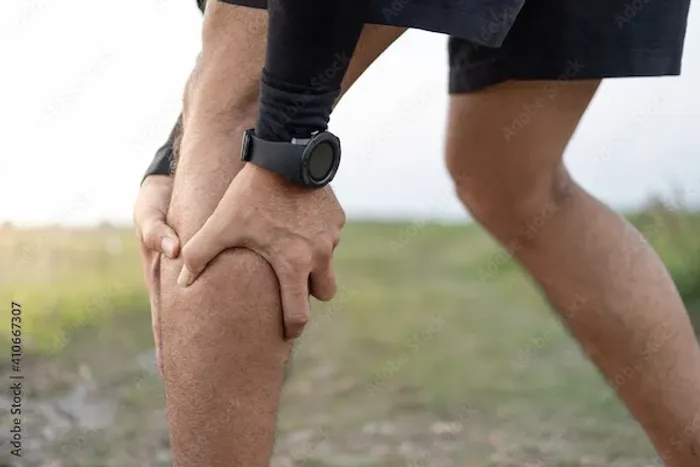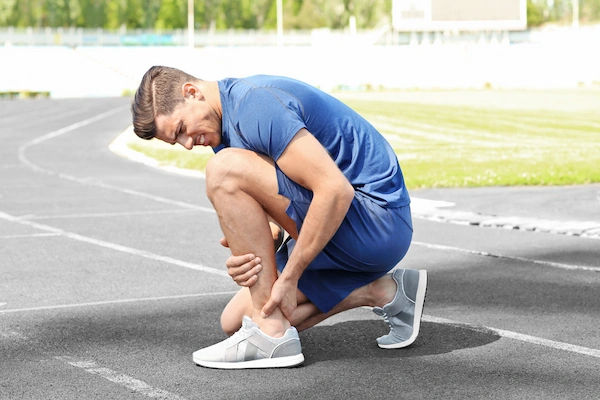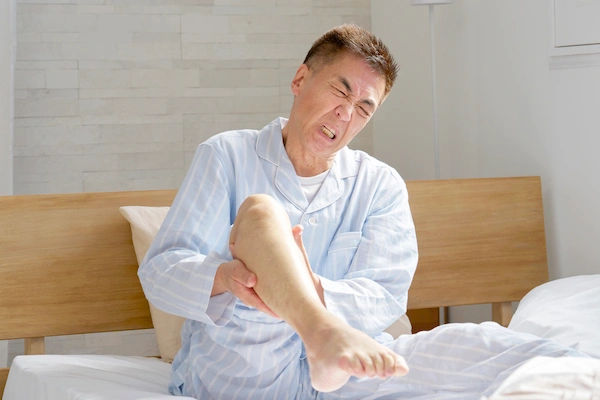How To Reduce Muscle Cramps?
Find effective ways to reduce muscle cramps! Learn simple tips and remedies for leg, calf, and other muscle spasms, including stretching, hydration, and dietary adjustments.

Written by Dr.Sonia Bhatt
Last updated on 13th Jan, 2026

Muscle cramps are sudden, painful contractions of one or more muscles that can strike at any time—whether you're exercising, sleeping, or even just sitting. They can range from mildly uncomfortable to extremely painful, leaving you searching for quick relief. The good news is that muscle cramps are often preventable and manageable with simple lifestyle changes.
In this article, we’ll explore what muscle cramps are, why they happen, and most importantly, how you can reduce them effectively.
What Are Muscle Cramps?
Muscle cramps are involuntary and often painful spasms that occur when a muscle contracts and doesn’t relax. They can last from a few seconds to several minutes and may leave the affected muscle sore afterward. Common areas for cramps include:
Legs (especially calves)
Feet
Thighs
Hands
Abdomen
While they are usually harmless, frequent cramps could indicate an underlying issue that may need medical attention.
What Causes Muscle Cramps?
Several factors can trigger muscle cramps, including:
Dehydration: A lack of sufficient fluids in the body can disrupt the delicate balance of electrolytes, making muscles significantly more susceptible to painful cramping.
Electrolyte Imbalance: Low levels of essential electrolytes such as potassium, magnesium, calcium, or sodium can interfere with normal muscle function and contribute to the occurrence of muscle spasms.
Overuse or Fatigue: Engaging in strenuous physical activity for excessive durations or pushing muscles beyond their limits can lead to strain and subsequently trigger muscle cramps.
Poor Blood Circulation: Reduced blood flow to the muscles, a condition that is more common in older adults, can deprive them of necessary oxygen and nutrients, thereby increasing the likelihood of cramps.
Nerve Compression: Certain medical conditions, such as spinal stenosis, can cause irritation or compression of nerves, which may manifest as involuntary muscle spasms.
Pregnancy: The hormonal shifts that occur during pregnancy, along with the increased pressure on leg muscles from the growing uterus, are frequent contributors to leg cramps in pregnant individuals.
Medications: The use of certain pharmaceutical drugs, including diuretics and statins, can sometimes increase an individual's risk of experiencing muscle cramps as a side effect.
Consult Top Specialist For Muscle Cramps
How to Reduce Muscle Cramps?
Reduce muscle cramps with these effective strategies:
Stay Hydrated: Drink 8-10 glasses of water daily (more if active/hot weather). Athletes: consider electrolyte drinks.
Stretch Regularly: Gentle stretching pre- and post-exercise prevents tightness. Try specific stretches for calf and foot cramps.
Balanced Diet: Ensure adequate potassium, magnesium, and calcium intake through foods like bananas, almonds, and dairy.
Warm Up: Always warm up with light cardio for 5-10 minutes before intense activity.
Massage & Temperature Therapy: Gently massage cramped muscles. Use warmth for tightness, cold for post-cramp soreness.
Improve Circulation: Move regularly if sitting, elevate legs at night, consider compression socks.
Avoid Overexertion: Gradually increase exercise intensity and listen to your body's limits.
Review Medications: Consult your doctor if you suspect medication-related cramps.
When to See a Doctor?
Most muscle cramps are harmless, but seek medical advice if:
Cramps are frequent and severe.
They don’t improve with selfcare.
You notice muscle weakness, swelling, or redness.
Cramps occur alongside numbness or tingling.
These could indicate nerve issues, circulation problems, or other medical conditions.
Conclusion
Muscle cramps can be annoying, but simple lifestyle changes—like staying hydrated, stretching, and eating a mineralrich diet—can help prevent them. If cramps persist or worsen, don’t hesitate to consult a healthcare professional. If you experience frequent muscle cramps and need expert advice, you can book a consultation with a specialist on Apollo 24|7 for personalized guidance. Stay active, stay hydrated, and keep those cramps at bay!
Consult Top Gynecologist
Consult Top Specialist For Muscle Cramps

Dr. Revathi S Rajan
Obstetrician and Gynaecologist
24 Years • MBBS, DGO, DNB.FFMM
Bengaluru
Apollo Clinic, JP nagar, Bengaluru

Dr. Renuka Chandran
Obstetrician and Gynaecologist
30 Years • MBBS, MD, DGO, Masters in Advanced Ultrasound in Obs & Gynea
Bangalore
Apollo Clinic Bellandur, Bangalore

Dr. Sreeparna Roy
Obstetrician and Gynaecologist
8 Years • MBBS , MS (OBSTETRICS & GYNAECOLOGY), Fellowship in Infertility, Endoscopy & Ultrasonography), Fellowship in Laparoscopy & Hysteroscopy,DRM
Kolkata
Dr Utsa Basu Clinic, Kolkata
Dr. B Shravanthi Reddy
Radiation Specialist Oncologist
8 Years • MBBS, DNB(Radiation Oncology)
Manikonda Jagir
Apollo Clinic, Manikonda, Manikonda Jagir

Dr. Sai Lakshmi Daayana
Gynaecological Oncologist
18 Years • MBBS, MRCOG
Hyderabad
Apollo Hospitals Jubilee Hills, Hyderabad
(225+ Patients)
Consult Top Gynecologist

Dr. Revathi S Rajan
Obstetrician and Gynaecologist
24 Years • MBBS, DGO, DNB.FFMM
Bengaluru
Apollo Clinic, JP nagar, Bengaluru

Dr. Renuka Chandran
Obstetrician and Gynaecologist
30 Years • MBBS, MD, DGO, Masters in Advanced Ultrasound in Obs & Gynea
Bangalore
Apollo Clinic Bellandur, Bangalore

Dr. Sreeparna Roy
Obstetrician and Gynaecologist
8 Years • MBBS , MS (OBSTETRICS & GYNAECOLOGY), Fellowship in Infertility, Endoscopy & Ultrasonography), Fellowship in Laparoscopy & Hysteroscopy,DRM
Kolkata
Dr Utsa Basu Clinic, Kolkata
Dr. B Shravanthi Reddy
Radiation Specialist Oncologist
8 Years • MBBS, DNB(Radiation Oncology)
Manikonda Jagir
Apollo Clinic, Manikonda, Manikonda Jagir

Dr. Sai Lakshmi Daayana
Gynaecological Oncologist
18 Years • MBBS, MRCOG
Hyderabad
Apollo Hospitals Jubilee Hills, Hyderabad
(225+ Patients)




